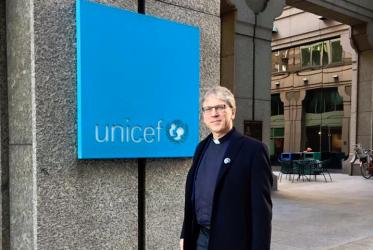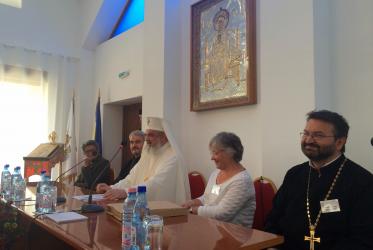Displaying 101 - 120 of 143
Standing Rock decision ”Gospel news” for indigenous communities
08 December 2016
New Executive Committee members elected in Trondheim
28 June 2016
International affairs facilitator reflects on pilgrimage
31 March 2016
Symposium focuses on religion, violence, extremism
04 February 2016
Reclaiming our humanity
23 June 2015











